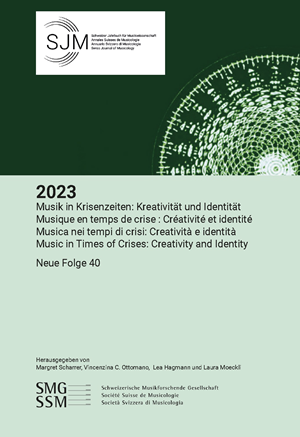„Ihr Völker lernt gefährlich leben.“ Mit Katastrophenmusiken auf dem Weg zum Frieden?
Dramaturgisches zum Oratorium Arche von Jörg Widmann
DOI:
https://doi.org/10.36950/sjm.40.2Schlagwörter:
Ludwig van Beethoven, Babylon, Humanism, Utopia, Friedrich SchillerAbstract
The central question posed in Jörg Widmann's oratorio Arche (2016/2017) is how a society can find new encouragement for the establishment of a more equitable world in times of crisis. This article examines the five movements of the composition and shows how Widmann's intertextual references contribute to conveying and answering this question: In both the text and the music, the composer refers to the European cultural heritage of several centuries, evoking horrific scenarios as well as utopias. However, the «golden path» elaborated in Widmann’s work does not emerge as expected between these contrasts; rather the way is left open for a future society to discover a path for itself without relying on a higher authority. Following the journey of the biblical Ark, the audience experiences various situations in which they are confronted with the necessity to find solutions for peaceful human coexistence. At the end of the oratorio, Widmann's "Dona nobis pacem" presents a plea for peace which remains unanswered, however; for who would be able to hear its song if mankind is not willing to listen?
Downloads
Downloads
Veröffentlicht
Ausgabe
Rubrik
Lizenz
Copyright (c) 2024 Florian Besthorn

Dieses Werk steht unter der Lizenz Creative Commons Namensnennung 4.0 International.


